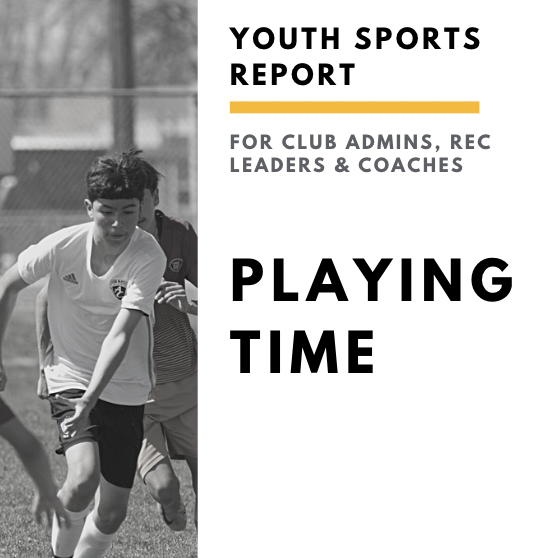Get our exclusive report. Download the iSport360 Club Switching Report Here – For Club Admins, Rec Leaders and Coaches.
Why Having Free Play for Kids Matters
Do you remember those days of running around the neighborhood and just playing with the friends in your area? That’s free play. It teaches so many lessons, but one that I love is the lesson of just dealing with disagreements and working through those conflicts (aka conflict resolution).
Fostering free play is essential for developing well-rounded, creative, and passionate athletes. It actually helps with so many things that it has come up more and more as something we need to foster. Organized sports have taken some of this away but we wanted to provide some tips to help foster free play.
The Importance of Free Play
- Encourages Creativity and Problem-Solving: Free play allows young athletes to invent their own games, modify rules, and solve problems on the fly. This creativity fosters a deeper understanding of the sport and helps players develop innovative strategies that can be beneficial during competitive play.
- Promotes Physical and Mental Well-being: Without the pressure of structured practices and competitions, children can enjoy the sheer fun of playing, which enhances their physical fitness and mental health. Free play reduces stress and anxiety, making sports a more enjoyable experience.
- Develop Social Skills: When children engage in free play, they learn to communicate, negotiate, and collaborate with their peers. These social interactions are crucial for building teamwork and leadership skills that are valuable both on and off the field.
- Foster A Love of the Sport: Free play nurtures a love for the sport that is driven by the child’s interests and passions rather than external rewards or pressures. This motivation often leads to consistent participation and a lifelong commitment to physical activity.
How to Encourage Free Play
Tips for Parents:
- Create a Play-Friendly Environment: Ensure that your child has access to safe spaces where they can play freely. This could be a backyard, a local park, or a community sports field. Provide basic equipment like balls, bats, and cones, but let your child decide how to use them.
- Limit Screen Time: Yawn….we haven’t heard that before but it is important and fostering free play or really any play, keeps kids away from their phones naturally. Set a positive example by engaging in physical activities yourself and inviting your child to join in.
- Encourage Peer Play: Facilitate opportunities for your child to play with friends and neighbors. Organize informal playdates where children can engage in unstructured play without adult interference.
Tips for Coaches:
- Incorporate Free Play into Practices: Dedicate a portion of each practice to free play. Allow children to choose their activities, form their own teams, and create their own rules. This not only makes practice more enjoyable but also encourages creativity and problem-solving.
- Promote a Fun-First Philosophy: Emphasize the importance of having fun over winning. When children feel that enjoyment is the primary goal, they are more likely to experiment and take creative risks during free play.
- Use Small-Sided Games: Small-sided games are a great way to mimic free play within a structured environment. These games provide more touches on the ball, encourage decision-making, and foster a sense of creativity and spontaneity.
The Balance Between Structure and Freedom
While free play is crucial, it’s also important to balance it with structured training. Structured practices help develop specific skills and techniques, while free play fosters creativity and a love for the game. Striking the right balance ensures that young athletes grow into well-rounded players who are skilled, passionate, and innovative.
Fostering this in youth sports is essential for developing creative, happy, and well-rounded athletes. By creating an environment that encourages unstructured play, both parents and coaches can help children develop a deep love for the game, improve their physical and mental well-being, and enhance their social skills. Remember, the ultimate goal of youth sports is to nurture a lifelong passion for physical activity and personal growth, and free play is a powerful tool in achieving this goal.
iSport360 is the only app that does it all for youth sports. For more information on what we do, click here.
About the author:
Amy Masters is a sports mom, coach, and club administrator. She has been coaching youth sports for more than 10 years. She started Jr Lions Field Hockey, the youth recreation program for the Hunterdon County community growing it from 40 players in year 1 to 150 players by year 3. A few years later, she saw the love and competitiveness grow then started Omega Field Hockey Club serving NJ and PA players. Before coaching, she was a collegiate field hockey player for Lock Haven University. In her spare time (lol), she is head of marketing for iSport360 and the co-editor of the Youth Sports Survival Guide. The Youth Sports Survival Guide is the largest youth sports newsletter in the world.
Learn more or request a demo of our youth sports software that is helping teams improve communication, organization and player development.
August 5, 2024





